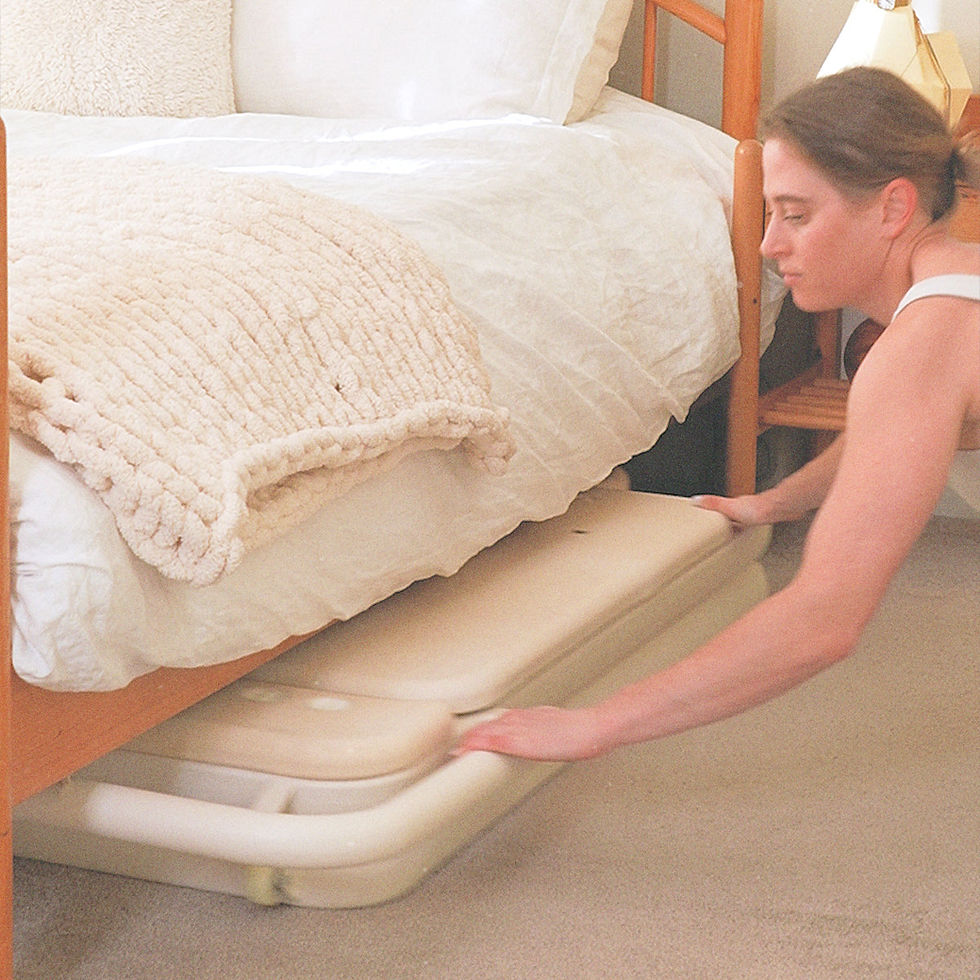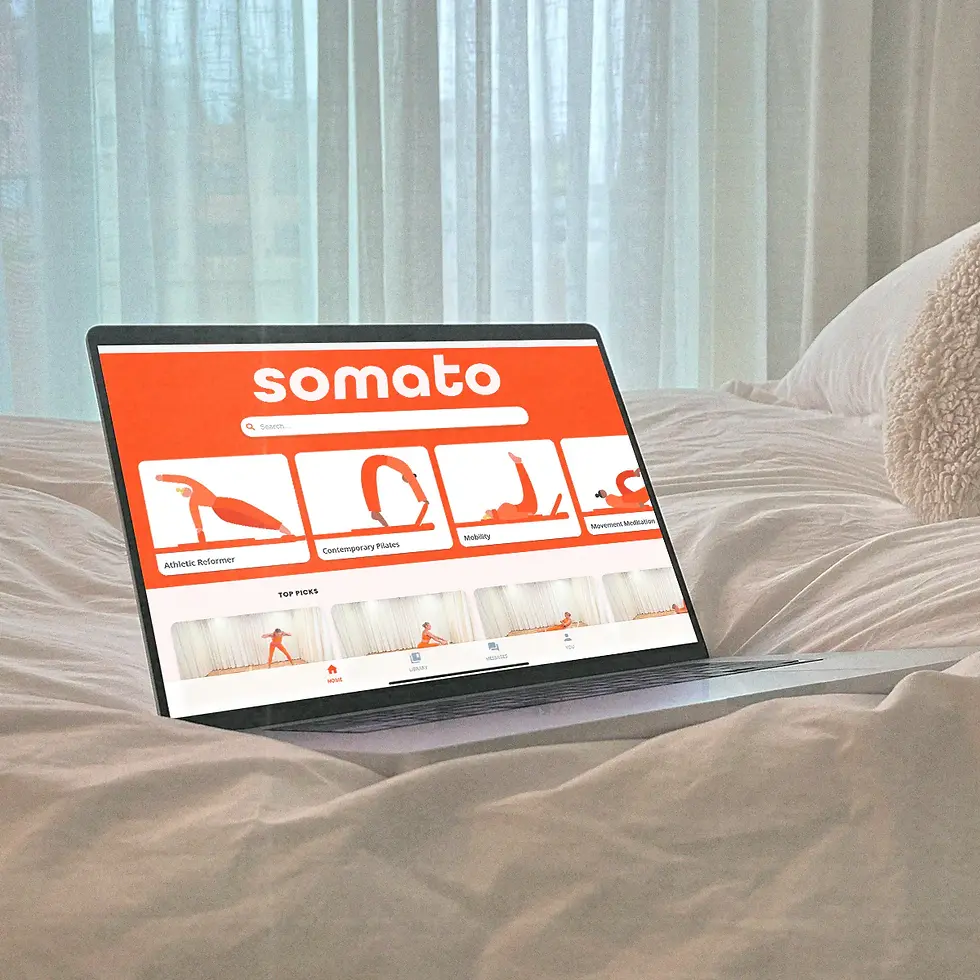Move with Grace with Somato Founder Hannah Fink
- Nov 24, 2025
- 4 min read

The human body did not evolve to be stagnant for most of the day. Our ancestors didn’t brave ice ages, outrun woolly mammoths, and survive great migrations so their descendants could be confined to windowless offices.
Even if you’re one of those people who wake up before the sun to exercise, that extra effort often comes at the cost of much-needed sleep. In our increasingly fast-paced world, how do you justify the opportunity cost of working out instead of resting?
I spoke with Somato founder Hannah Fink about how she reduced the opportunity cost of working out and turned that insight into a business that reimagines movement for real life.

Somato Founder Hannah Fink

1. What inspired you to create Somato?
Somato really started in the most unglamorous way possible, which was me stuck in my tiny Brooklyn studio during the pandemic. I was working on my master's thesis at the time, which was all about redesigning fitness equipment so it could live in someone’s home the way a piece of furniture would. But the funny twist was that I was craving Pilates more than anything, and I had nowhere to put a reformer. Even the “at-home” reformers were too big, too clunky, and honestly too unattractive to leave out in a space the size of a shoebox.
One day it just clicked: I had the design background, the fabrication skills, and this very real personal need, so why not try to solve it myself? I didn’t start out thinking “this is going to be a company,” I just knew I wanted an aesthetic, folding reformer that worked in an actual home. That was the seed that grew into Somato.

2. What makes Somato different from other fitness brands?
The biggest difference is that Somato was designed with real life in mind. So much fitness equipment still feels like it belongs in a gym. Even the traditional reformer is often described as looking like a medieval torture device, which is… not exactly an invitation to move your body after a long day.
I wanted to make something that felt intuitive, beautiful, and friendly. Every line, every mechanism, every material choice serves a purpose. The Somato reformer fits under your bed and unfolds in seconds, but it still gives you true studio-quality movement. And you don’t need to be an expert. Everything is designed to visually guide you. That combination of thoughtfulness, usability, and quiet beauty is what sets Somato apart. It’s not fitness that asks you to adapt to it. It adapts to you.

3. How has Somato evolved since its founding?
In the beginning, it was just me trying to solve my own apartment problem. As I built more prototypes and started sharing them with people, I realized the industry had much bigger gaps than just design. Studios were expensive. Class schedules were rigid. Waitlists were endless. New mothers and busy professionals, who often benefit the most from Pilates, had the least access to it.
Somato slowly became less about my home reformer and more about opening Pilates up to the world. The product and the brand evolved. And now it’s not just one piece of equipment. It’s a full ecosystem that supports people no matter their level, their schedule, or their space. It’s still growing and it still surprises me.

4. How do you incorporate your mission and vision into Somato's products?
My mission has always been to make Pilates feel accessible, intuitive, and inviting. That shows up in everything we make. The reformer is low to the ground so people feel safe getting on, off and challenging themselves. The springs use dials so resistance changes are easy and consistent. The straps retract so you’re never fighting a tangled mess. And it fits under your bed because your home should feel like a sanctuary, not a storage unit for fitness equipment.
On the content side, the Somato App gives people the tools to build a real practice at home. That includes contemporary Pilates, athletic reformer, movement meditation, and our Cycle Series with classes for every phase of the menstrual cycle. I want anyone to be able to walk up to the reformer, open the app, and feel confident. Our goal is to provide movement that meets you where you are, and it’s really baked into everything we do.

5. What advice would you give to students and young professionals who want to start their own business?
Trust your gut more than you trust people’s doubts. When you’re building something new, most people can only compare it to what already exists, which makes it hard for them to imagine what you see. Don’t waste your energy trying to convert every skeptic. Instead, study why they don’t believe it, refine your pitch, and move on.
Also, get comfortable with long timelines. Somato took three and a half years of prototyping because the design needed to be compact, strong, and lightweight all at once. When you can’t sacrifice any of the core constraints, the only thing you can sacrifice is time. If you really believe in the outcome, the long nights and long years stop feeling so heavy.

6. What's the next chapter?
There is so much I’m excited about. On the hardware side, we’re expanding the product line so people can build out their home studios in a thoughtful, cohesive way. On the content side, we’re bringing on more coaches with different backgrounds so people can experience the full spectrum of Pilates, from classical roots to more contemporary fusion styles.
The goal is for Somato to become the place where people build a lasting relationship with movement. Not a burst of motivation that fades, but something that supports them through every season of life. We’re just getting started.





Comments